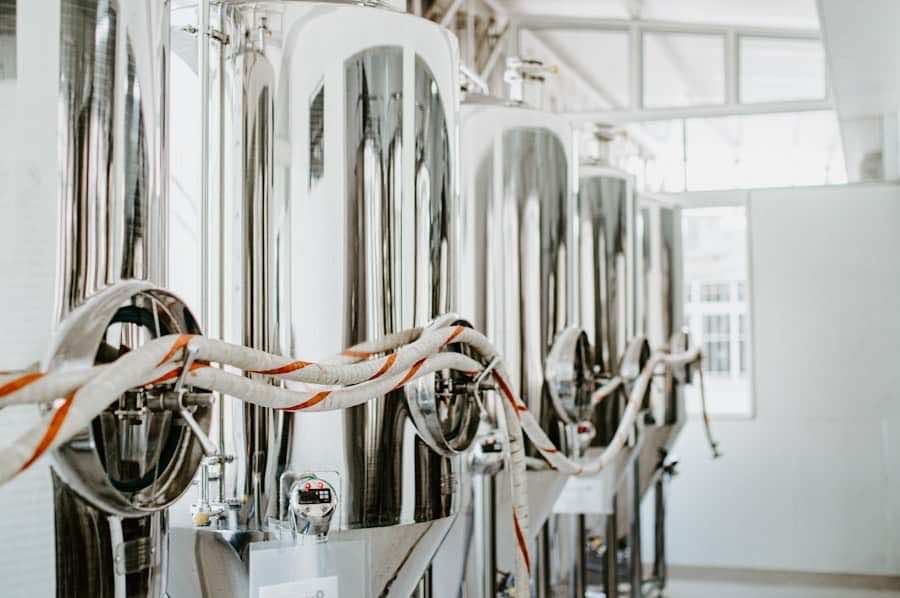The Internet of Things (IoT) has emerged as a transformative force in the realm of business process optimisation, fundamentally altering how organisations operate and interact with their environments. By connecting physical devices to the internet, IoT enables the collection and exchange of data in real-time, facilitating enhanced decision-making and operational efficiency. This interconnectedness allows businesses to monitor processes, track assets, and analyse performance metrics with unprecedented granularity.
As a result, organisations can identify inefficiencies, streamline operations, and ultimately drive profitability. The integration of IoT technologies into business processes is not merely a trend; it represents a paradigm shift in how companies leverage data to enhance their operations. From manufacturing to retail, the applications of IoT are vast and varied, providing organisations with the tools necessary to adapt to an increasingly competitive landscape.
By harnessing the power of IoT, businesses can not only optimise their internal processes but also improve customer experiences and foster innovation. The following sections will delve into specific applications of IoT across various domains, illustrating its profound impact on business process optimisation.
Summary
- IoT in business process optimisation involves using connected devices to improve efficiency and productivity in various business operations.
- In supply chain management, IoT can be used to track and monitor the movement of goods, improve visibility, and enhance decision-making.
- IoT in inventory management enables real-time tracking of stock levels, reduces manual errors, and automates reordering processes.
- Predictive maintenance using IoT helps businesses to monitor equipment health, predict failures, and schedule maintenance proactively, reducing downtime and costs.
- IoT in customer relationship management allows businesses to gather data on customer behaviour, preferences, and satisfaction to improve customer experience and loyalty.
IoT Applications in Supply Chain Management
In the realm of supply chain management, IoT technologies have revolutionised how companies track and manage their logistics. By employing sensors and connected devices, organisations can gain real-time visibility into their supply chains, allowing for more informed decision-making. For instance, GPS-enabled tracking devices can monitor the location and condition of shipments as they move through the supply chain.
This level of transparency enables businesses to anticipate delays, optimise routes, and ensure that products arrive at their destinations in optimal condition. Moreover, IoT applications in supply chain management extend beyond mere tracking. Predictive analytics powered by IoT data can help organisations forecast demand more accurately, allowing them to adjust production schedules and inventory levels accordingly.
For example, a manufacturer might use IoT sensors to monitor equipment performance and predict when maintenance is required, thereby preventing unexpected downtime that could disrupt the supply chain. By integrating IoT into their supply chain processes, businesses can enhance efficiency, reduce costs, and improve overall service levels.
IoT Applications in Inventory Management

Inventory management is another critical area where IoT has made significant strides. Traditional inventory management systems often rely on manual processes that can be prone to errors and inefficiencies. However, with the advent of IoT technologies, businesses can automate inventory tracking and management through connected devices.
RFID tags and barcode scanners can provide real-time data on stock levels, enabling organisations to maintain optimal inventory levels and reduce excess stock. Additionally, IoT applications facilitate better demand forecasting by analysing historical sales data alongside real-time market trends. For instance, a retail store can utilise IoT sensors to monitor customer foot traffic and purchasing patterns, allowing it to adjust inventory levels dynamically based on actual demand.
This not only minimises the risk of stockouts but also reduces holding costs associated with excess inventory. By leveraging IoT for inventory management, businesses can achieve greater accuracy and efficiency in their operations.
IoT Applications in Predictive Maintenance
Predictive maintenance is a game-changer for industries reliant on machinery and equipment. Traditional maintenance practices often involve scheduled inspections or reactive repairs after equipment failure occurs. However, with IoT technologies, organisations can shift towards a more proactive approach by utilising real-time data from connected devices to predict when maintenance is needed.
Sensors embedded in machinery can monitor various parameters such as temperature, vibration, and operating hours, providing valuable insights into equipment health. For example, a manufacturing plant might implement IoT sensors on its production line machinery to detect anomalies that could indicate impending failures. By analysing this data through predictive analytics algorithms, the plant can schedule maintenance activities at optimal times, minimising downtime and reducing repair costs.
This approach not only extends the lifespan of equipment but also enhances overall operational efficiency. As industries continue to embrace IoT for predictive maintenance, the potential for cost savings and improved reliability becomes increasingly evident.
IoT Applications in Customer Relationship Management
In the domain of customer relationship management (CRM), IoT technologies are reshaping how businesses engage with their customers. By collecting data from connected devices, organisations can gain deeper insights into customer preferences and behaviours. For instance, smart home devices can provide valuable information about how consumers interact with products, enabling companies to tailor their offerings accordingly.
Moreover, IoT applications facilitate personalised marketing strategies by allowing businesses to deliver targeted promotions based on real-time data. For example, a smart thermostat manufacturer might analyse usage patterns to identify when customers are most likely to purchase energy-saving upgrades. By leveraging this information, companies can enhance customer satisfaction and loyalty through tailored experiences that resonate with individual needs.
The integration of IoT into CRM systems not only improves customer engagement but also drives revenue growth by fostering long-term relationships.
IoT Applications in Energy Management

Energy management is an area where IoT technologies have proven particularly beneficial for businesses seeking to optimise their energy consumption and reduce costs. Smart meters and connected devices enable organisations to monitor energy usage in real-time, providing insights that can inform energy-saving strategies. For instance, a commercial building equipped with IoT sensors can track energy consumption patterns across different areas, identifying opportunities for efficiency improvements.
Additionally, IoT applications facilitate demand response programmes that allow businesses to adjust their energy usage based on real-time pricing signals from utility providers. For example, during peak demand periods when energy prices are higher, a manufacturing facility might temporarily reduce its energy consumption by adjusting production schedules or powering down non-essential equipment. This not only helps businesses save on energy costs but also contributes to grid stability by reducing overall demand during peak times.
As organisations increasingly prioritise sustainability and cost-effectiveness, the role of IoT in energy management will continue to expand.
IoT Applications in Quality Control
Quality control is paramount in ensuring that products meet established standards and customer expectations. IoT technologies have introduced new dimensions to quality assurance processes by enabling real-time monitoring of production parameters. Connected sensors can track variables such as temperature, humidity, and pressure during manufacturing processes, ensuring that products are produced under optimal conditions.
For instance, in the food industry, IoT sensors can monitor storage conditions throughout the supply chain to ensure that perishable goods are kept at safe temperatures. If any deviations occur, alerts can be triggered to prompt immediate corrective actions. This level of oversight not only helps prevent quality issues but also enhances compliance with regulatory standards.
By integrating IoT into quality control processes, businesses can achieve higher product quality while minimising waste and recalls.
Conclusion and Future Trends in IoT for Business Process Optimisation
As we look towards the future of business process optimisation through IoT technologies, several trends are emerging that promise to further enhance operational efficiency and innovation. The proliferation of 5G networks will enable faster data transmission and lower latency for connected devices, facilitating even more sophisticated applications across various industries. This advancement will allow businesses to harness real-time data analytics at an unprecedented scale.
Furthermore, the integration of artificial intelligence (AI) with IoT will unlock new possibilities for automation and decision-making. AI algorithms can analyse vast amounts of data generated by IoT devices to identify patterns and trends that may not be immediately apparent to human analysts. This synergy between AI and IoT will empower organisations to make more informed decisions quickly and efficiently.
In conclusion, the potential of IoT in business process optimisation is vast and continues to evolve as technology advances. From supply chain management to quality control, the applications of IoT are reshaping how organisations operate and interact with their customers and environments. As businesses embrace these innovations, they will be better positioned to thrive in an increasingly competitive landscape while driving sustainable growth.
One related article that complements the discussion on IoT applications in business process optimisation is The Importance of Business Education in Modern Society. This article delves into the significance of acquiring a solid foundation in business education to navigate the complexities of the modern business landscape. Understanding the latest technologies, such as IoT, is crucial for businesses to stay competitive and efficient in their operations. By combining IoT applications with a strong business education, companies can streamline their processes and enhance their overall performance.
FAQs
What is IoT?
IoT stands for Internet of Things, which refers to the network of physical devices, vehicles, home appliances, and other items embedded with electronics, software, sensors, actuators, and connectivity which enables these things to connect and exchange data.
What are IoT applications in business process optimisation?
IoT applications in business process optimisation involve using IoT devices and technology to streamline and improve various business processes. This can include monitoring and controlling equipment, tracking inventory and assets, automating routine tasks, and gathering data for analysis and decision-making.
How can IoT improve business processes?
IoT can improve business processes by providing real-time data and insights, enabling predictive maintenance of equipment, automating repetitive tasks, enhancing supply chain management, and improving overall operational efficiency.
What are some examples of IoT applications in business process optimisation?
Examples of IoT applications in business process optimisation include smart inventory management systems, predictive maintenance for machinery, automated temperature and humidity control in warehouses, real-time tracking of shipments, and smart energy management systems.
What are the benefits of using IoT in business process optimisation?
The benefits of using IoT in business process optimisation include increased efficiency, reduced operational costs, improved decision-making based on real-time data, enhanced customer satisfaction, and the ability to create new business models and revenue streams.
